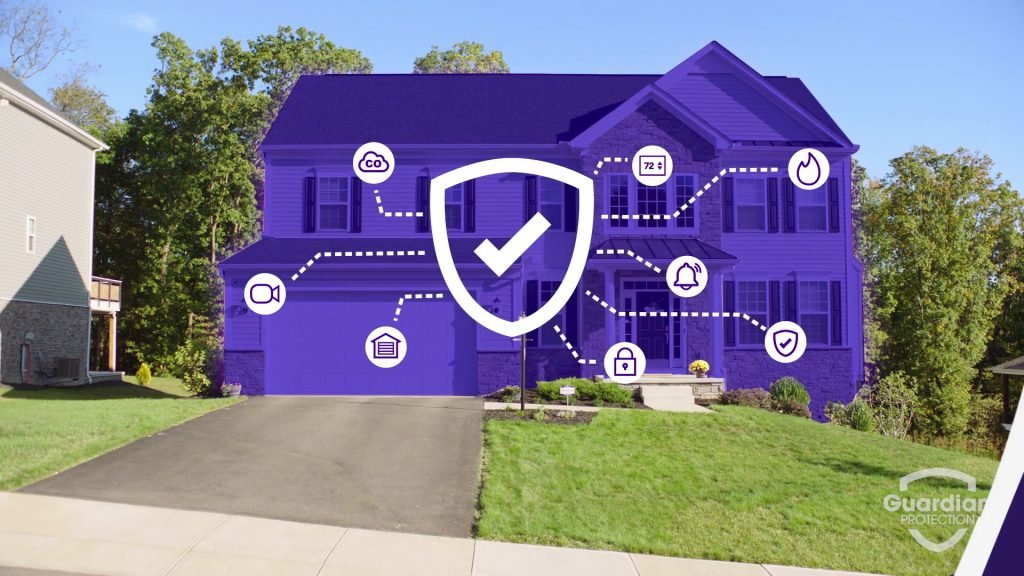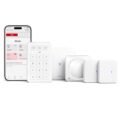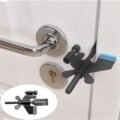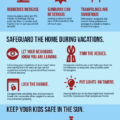Title: How to Choose the Best Home Security System? To select the best home security system, assess your security needs and budget. Compare features, monitoring services, and customer reviews for informed decision-making.
Also Read
Ensuring the safety of your home is paramount, and choosing the right security system can be daunting. The market overflows with options, each boasting unique features and technology
. Homeowners must navigate through a maze of wired and wireless systems, smart home compatibility, and various monitoring services.
It’s essential to balance cost against the level of protection desired. User-friendly interfaces and reliable customer support stand out as critical factors in the selection process. Trustworthy reviews and ratings offer valuable insights, guiding you toward a system that aligns with your lifestyle.
Remember, the goal is to deter intruders and provide peace of mind, so choose a system that delivers on both fronts.
Introduction To Home Security
Introduction to Home Security
Home security is no longer a luxury, it’s a necessity. As technology advances, so do the methods of burglars and intruders. Choosing the best home security system is vital to protect your loved ones and your belongings. A robust system not only deters potential threats but also provides peace of mind. In this post, we’ll explore key factors to consider when selecting a security system that meets your needs.
Rising Importance of Home Safety
Rising Importance Of Home Safety
Our homes are our sanctuaries, and their safety is paramount. Crime statistics and urban growth have heightened the need for enhanced security measures. Modern home security systems offer advanced features such as remote monitoring, smart alarms, and instant alerts, making them indispensable in today’s world.
Goals of a Reliable Security System
Goals Of A Reliable Security System
A reliable security system aims to protect, deter, and alert. It should offer comprehensive coverage of your property, with sensors and cameras placed at strategic points. The goals include:
- Detection of unauthorized entry
- Deterrence of potential intruders
- Alerting homeowners and authorities during breaches
Furthermore, it should be user-friendly, offering easy control and access through mobile apps or web interfaces. Look for systems with a history of reliability and customer satisfaction.

Credit: www.hindustantimes.com
Key Features Of Top Security Systems
Choosing the best home security system is important. It keeps your home safe. Let’s explore the key features of top security systems.
Essential Components
The best systems have certain parts. These parts are very important.
- Control Panel: This is the system’s brain. It controls everything.
- Door and Window Sensors: These alert when someone opens them.
- Motion Detectors: They sense movement inside your home.
- High-Decibel Alarm: This loud alarm scares off intruders.
- Surveillance Cameras: Cameras watch and record movements.
Advanced Technology Integration
Top systems use new technology. This makes them better.
They work with your smartphone. You can control them from anywhere.
- Smart Home Compatibility: They work with smart home devices.
- Wireless Technology: No wires needed. It’s all wireless.
- Remote Monitoring: Watch your home from anywhere with an app.
- Automated Responses: The system acts on its own in danger.
Wired Vs. Wireless Systems
Choosing the right home security system is crucial. Two main types exist: wired and wireless. Each has unique features. Understand both to make an informed decision.
Pros And Cons Of Wired Systems
Wired security systems connect through cables. They often require professional installation. Let’s explore their advantages and drawbacks.
| Pros | Cons |
|---|---|
| Reliable signal strength | Difficult to install |
| Not dependent on Wi-Fi | Hard to move once installed |
| Good for large homes | Visible wires may be unsightly |
Benefits Of Going Wireless
Wireless systems offer flexibility and ease. They communicate through Wi-Fi or cellular signals. See why they might be the better choice.
- Easy to install and move
- No wires, cleaner look
- Remote access via mobile devices
- Often with battery backup
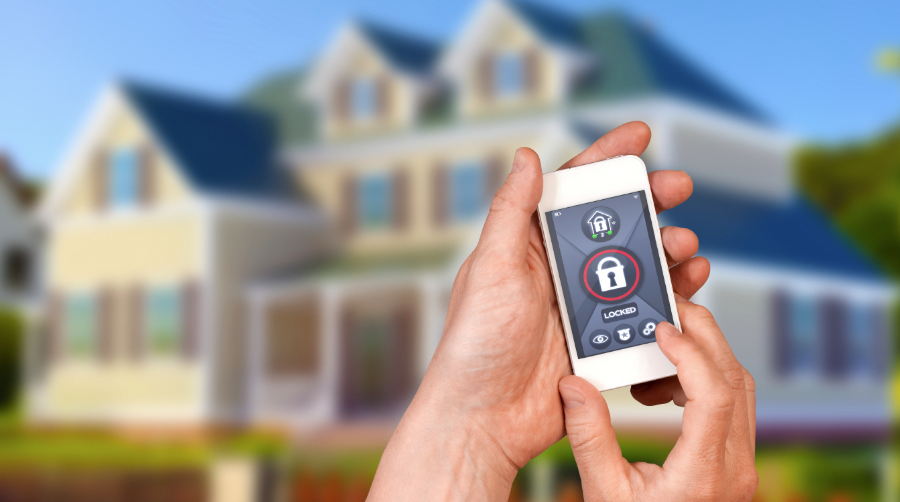
Credit: ngscinc.com
Smart Home Compatibility
Choosing the right home security system is crucial. It must match your smart home gadgets. This ensures control and convenience. Let’s explore how to pick a system that fits your smart home perfectly.
Integrating With Home Automation
Your security system should work with home automation. This brings everything under one control hub. Look for systems that support popular protocols like Z-Wave or Zigbee.
- Check compatibility: Make sure the system pairs with your devices.
- Unified app control: Use one app for all smart home actions.
- Future-proofing: Choose a system that updates with new tech.
Choosing Flexible Platforms
Select a system that supports different brands. This gives you freedom to choose various smart products. Avoid systems that lock you into one brand or ecosystem.
| Feature | Benefit |
|---|---|
| Multi-brand support | More device choices |
| Open platform | Easy to add new devices |
| No brand lock-in | Freedom to change |
Remember, the best system grows with your smart home needs. It should offer security and smart control in one package.
Evaluating Monitoring Services
Choosing the right home security system involves many steps. One key step is Evaluating Monitoring Services. This ensures your home stays safe at all times. Let’s dive into what you need to know.
Self-monitoring Vs. Professional Services
Home security systems offer two main types of monitoring: self-monitoring and professional services. Each has its own pros and cons.
- Self-Monitoring: You check your home security by yourself. You use your phone or computer. It’s cheaper but needs more of your time.
- Professional Services: A team watches your home 24/7. They call for help if needed. It costs more but gives peace of mind.
Understanding Service Level Agreements
A Service Level Agreement (SLA) is a promise from the monitoring service. It tells what they will do for you. Knowing this is very important.
| Feature | Self-Monitoring | Professional Services |
|---|---|---|
| 24/7 Monitoring | No | Yes |
| Response Time | Varies | Usually faster |
| Monthly Cost | Lower | Higher |
Choosing between self-monitoring and professional services depends on your needs. Do you want full control? Or do you prefer someone else to handle it? Know what the SLA promises. Make sure it fits your expectations.
Cost Considerations
Choosing the best home security system involves balancing quality and expense. It’s crucial to consider the overall cost, not just the upfront price. Let’s explore how to budget effectively and uncover any hidden costs to ensure real value for your investment.
Budgeting For Security
Start by setting a clear budget for your home security system. Think about both initial and ongoing costs. Here are steps to create a budget:
- Determine your security needs: Identify the level of protection you want.
- Research average costs: Look at prices for different systems online.
- Set a price range: Decide on a minimum and maximum you can spend.
- Plan for extras: Include additional sensors or cameras in your budget.
Hidden Costs And Value For Money
Be aware of hidden costs that can increase the total price of a home security system. Examples include:
- Installation fees: Some companies charge extra for professional setup.
- Monthly monitoring: Ongoing fees for monitoring services can add up.
- Maintenance costs: Factor in the expense of future repairs or upgrades.
- Contract length: Longer contracts might have lower monthly costs but higher overall expense.
Evaluate the long-term value of the system. Consider these aspects:
| Feature | Value |
|---|---|
| Warranty | Longer warranties can save on future costs. |
| Brand reputation | Reputable brands might offer better reliability and support. |
| Technology | Advanced tech may provide better security and last longer. |
| Scalability | Systems that expand easily could be more cost-effective over time. |
Installation Process
Choosing the right home security system involves several steps. Today, let’s talk about the installation process. This process is vital. It ensures your system works well to protect your home. Ease of installation, time, and cost vary. Let’s dive into what you need to know.
Diy Vs. Professional Installation
DIY installation gives you control. You don’t need an expert. You can save money. But, you must understand the system well. Professional installation costs more. Yet, you get expertise. An expert ensures everything is set up right. Choose based on your comfort level and budget.
Preparing For Installation
Before installing, plan. Think about where cameras and sensors should go. Check your Wi-Fi strength. It must be strong for a good connection. Gather your tools. Read the manual. Make sure you have everything you need. This prep work will make installation smoother.
| Step | DIY | Professional |
|---|---|---|
| Cost | Lower | Higher |
| Time | Varies | Scheduled |
| Expertise | Not required | Provided |
| Tools | Needed | Not needed |
- Review installation steps.
- Identify security zones.
- Test equipment before full install.
- Choose between DIY or professional.
- Prepare your space and tools.
- Follow instructions closely.
User Experience And Accessibility
User Experience and Accessibility play critical roles in the effectiveness of a home security system. A system that’s hard to use may discourage regular interaction. It can lead to improper configuration. Ease of access and intuitive controls are essential. They ensure that every family member can operate the system. Let’s explore key aspects of system interaction.
Navigating Control Panels
Control panels are the heart of home security systems. They should be straightforward and responsive. Large icons and clear labels are important. They guide users without confusion. Look for panels with simple menus. They allow quick access to system features.
- Touchscreen displays offer modern interaction.
- Backlit buttons help in low-light conditions.
- Voice commands can enhance accessibility for all.
Mobile App Functionality
A robust mobile app extends control beyond the home. It should provide a seamless experience. Real-time alerts and remote access are key features. Ensure the app receives regular updates for security and performance.
| App Feature | Benefit |
|---|---|
| Live Streaming | Monitor home in real time. |
| History Log | Review past activities easily. |
| Remote Arm/Disarm | Control system from anywhere. |
Choose an app with a user-friendly interface. It should offer quick navigation and stability. Multi-user support is a plus. It allows family members to stay informed and involved.
Security System Maintenance
Maintaining your home security system ensures its reliability. A neglected system might fail when you need it most. Regular checks and troubleshooting are key.
Regular Maintenance Checks
Consistent maintenance prevents unexpected failures. Follow these steps:
- Inspect sensors and detectors for dust and debris.
- Test alarms and batteries monthly.
- Review camera feeds for clarity and field of view.
- Update software to the latest versions.
- Check system backups and power supplies.
Troubleshooting Common Issues
Encounter a problem? Address these common issues swiftly:
| Issue | Solution |
|---|---|
| False Alarms | Clean sensors, adjust settings. |
| Camera Downtime | Check power supply, restart system. |
| Signal Loss | Ensure strong network connection. |
| Software Glitches | Reinstall updates, reboot hardware. |
Customer Support And Warranties
Choosing the best home security system is crucial. Customer Support and Warranties play a big part. They ensure you get help when needed and understand your rights. Let’s dive into evaluating support quality and understanding warranty terms.
Evaluating Support Quality
Good customer support is key. It makes your security system reliable. Here’s how to check support quality:
- Availability: Look for 24/7 support. It’s important for emergencies.
- Response Time: Quick help is best. Test by asking a question.
- Communication Channels: More ways to reach out are better. Check for phone, email, and chat options.
- Expertise: Support teams should know their stuff. They should answer your questions well.
Understanding Warranty Terms
Warranties protect your investment. They fix or replace faulty equipment. Here’s what to look for in warranty terms:
| Warranty Type | What It Covers | Duration |
|---|---|---|
| Limited Warranty | Only covers certain parts or issues. | Varies by product |
| Full Warranty | Covers any defect or malfunction. | Usually 1-2 years |
Always read the fine print. Know what’s covered and for how long. Ask questions if something is not clear.
Making The Final Decision
Choosing the right home security system is crucial. It ensures safety and peace of mind. This guide helps compare top options and tailor the perfect security plan.
Comparing Top Contenders
Start by listing the best security systems. Focus on features, costs, and customer reviews. Use a table to display this information clearly.
| Security System | Key Features | Price Range | User Rating |
|---|---|---|---|
| System A | 24/7 monitoring, mobile app | $200-$400 | 4.5 stars |
| System B | Wireless, smart home integration | $150-$350 | 4 stars |
| System C | DIY installation, no monthly fees | $100-$300 | 4.2 stars |
Personalizing Your Home Security Plan
Think about your specific needs. Consider home size, neighborhood, and lifestyle. Match these with the right features.
- Large homes might need more cameras.
- City living might require advanced door locks.
- Pet owners should look for pet-friendly sensors.
Match your needs with the right system features. This ensures the best protection.
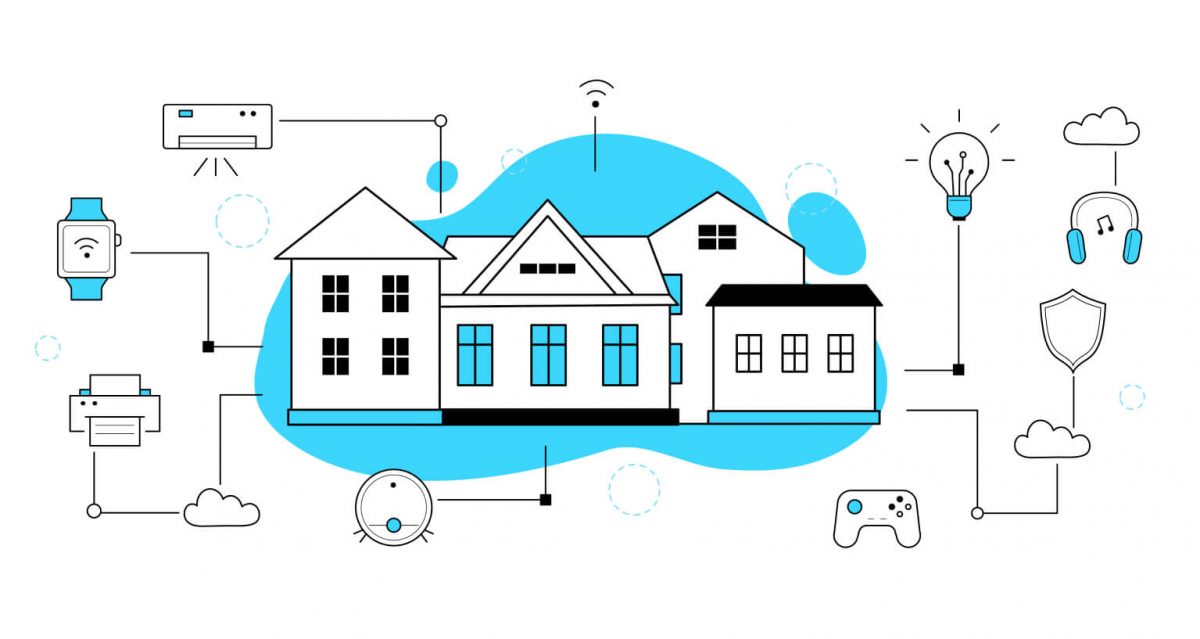
Credit: tedee.com
Frequently Asked Questions
What Factors Determine The Best Home Security System?
When choosing the best home security system, consider factors like monitoring options, installation procedures, system integration, customer reviews, and cost-efficiency to ensure a secure and reliable setup that fits your needs and budget.
Is Diy Or Professional Installation Better?
DIY installation offers flexibility and cost savings, while professional installation ensures the system is set up correctly and often comes with additional support. Your choice should align with your comfort with technology and time availability.
How Do Smart Features Enhance Security Systems?
Smart features in home security systems enable remote control, real-time alerts, and integration with other smart devices, enhancing overall security and convenience. They allow users to monitor their homes from anywhere using their mobile devices.
Can I Integrate Home Security With Other Smart Home Devices?
Yes, many modern home security systems can be integrated with other smart home devices such as lights, locks, and thermostats, creating a cohesive and automated home management ecosystem that increases both security and energy efficiency.
Conclusion
Selecting the right home security system doesn’t have to be daunting. Focus on your specific needs and budget. Remember, a safer home is priceless, but it doesn’t have to break the bank. With the right research and understanding, peace of mind is within reach.
Protect your sanctuary smartly and efficiently.

